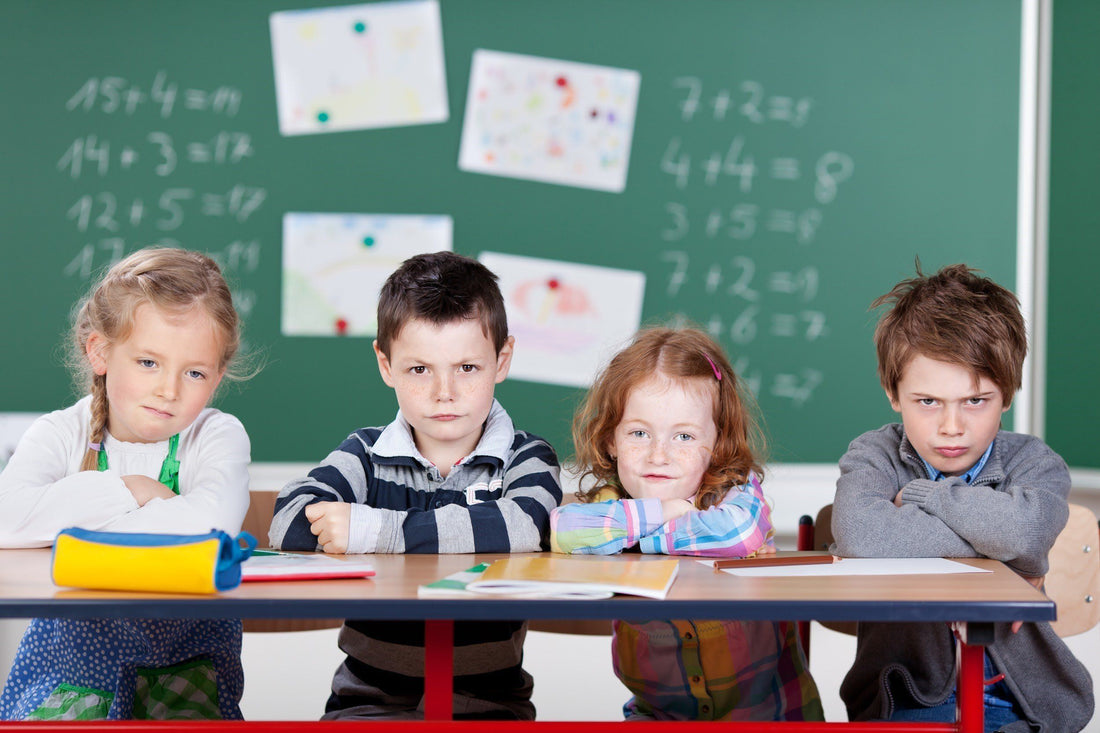Have you noticed troubling changes in your child or teen? Negative behaviors can crop up after a change in schools, a move to a new neighborhood, or heightened levels of anxiety or concern about something you may or may not be aware of. And although they may just be part of a phase in your kid’s development, these changes could also stem from relationships with friends who are not really friends and who may lead your child into dangerous, anti-social or unhealthy behavior. So, what do you do now?
Recognizing the Wrong Crowd
Of course, you can’t be with your kid 24/7, so your job as a parent is to diagnose from a distance — not always a simple task. Your instincts will probably give you a good push if things seem wrong with your child. Then ask yourself these questions:
● Are they more withdrawn and secretive than usual?
● Are they showing new and unusual anger, aggression or disrespect to you or others at home?
● Are they constantly concerned with pleasing a new friend or group of friends?
● If you have met the new friends, are they disrespectful?
● Do they bully or tease your child or others?
● Do they ignore your house rules?
What’s So Wrong with That?
You’ve had much more life experience than your kid. Chances are, you were bullied yourself as a young person, knew someone who was or had some other kind of toxic relationship at one point or another. Your child needs to learn about what makes a relationship healthy or unhealthy, and it’s your job to explain. This is especially important if your child struggles with anxiety, as they may be more likely targets of bullying from “friends.” Before you ask your child why they have chosen to be friends with these kids, recognize and communicate the good qualities you have seen in your child.
Then, go ahead and talk to your kid about what you’ve noticed in their new friend(s). Without condescending or attacking them, explain specifically what it is in their behavior that concerns you or is unacceptable. Be honest and direct. Ask your child if they’ve noticed any of the behaviors that concern you.
Shine Brighter
Cooling Off the Wrong Friendship
Place some boundaries around your child’s friendships. Give your child a curfew, and make it stick, with consequences if it is broken. Put limits on social media use; besides the known benefits of limiting screen time, cutting back on social media can reduce the risks of bullying, negative talk, and excessive time spent with toxic peers. Don’t provide rides or otherwise help your kid spend time with friends you know are a bad influence. These steps may be enough to cool off the friendship to a point where it no longer affects your kid too much. But if you think your child needs to drop a friendship entirely, give them some guidance on how to make the break. They may need to tell those friends that they’re not going to be visiting or going places with them anymore. They may need to un-friend and un-follow on social media. Let them know it’s okay to “blame” you for the new limits unless they feel up to giving reasons of their own for the change.
Close One Door, Open Another
It’s not enough to say no. Your kid needs to learn how to have good friendships, not just how to avoid or end bad ones. Give your child more opportunities to find friends and activities that are creative, positive and fun. If you pay attention to your kid’s interests, you’re sure to hit on some ideas for new areas to explore. Perhaps a new sport, a membership at a gym, musical or artistic pursuits, a part-time job, volunteer work or activities available through your local library will appeal to them. As they find new friends through these activities, remind them to:
● Show respect and expect respect in return
● Apologize sincerely when they’re wrong
● Listen and show interest in what others have to say
● Don’t participate in gossip or name-calling with other kids
● Keep arguments light
● Avoid personal insults or violent behavior
Though your child may chafe at your restrictions on unhealthy friendships at first, try to remember that the benefits to their mental and emotional well-being will be worth the short-term pain of loneliness and loss. Give your child hugs. Let them know that you care about their unhappiness at the moment, but make clear you value their long-term happiness too much to allow them to be hurt by toxic friendships. Then, help them move on and find worthwhile, fulfilling ways to spend their time while making new friends.






